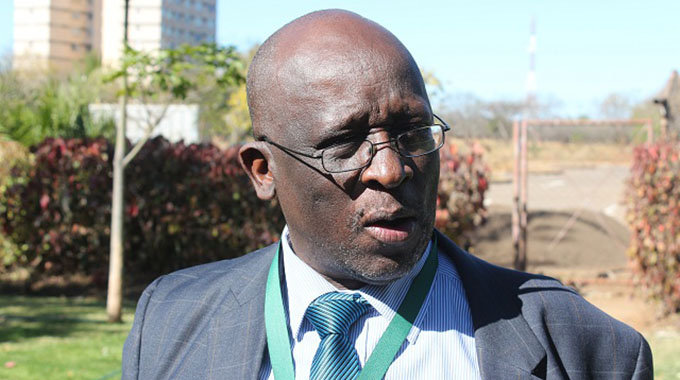Govt pushes policy review

Herald Reporter
THE Government has pledged to quicken the pace of projects’ implementation to ensure the attainment of development targets set out under the National Development Strategy (NDS) leading to an upper middle-income economy by 2030.
Ministries and agencies have since been directed to craft pro-people and servant leadership policies that will lift the citizenry from poverty in line with President Mnangagwa’s directive.
While 2030 was the target to achieve the upper-middle-income economy, the President has said the foundation laid during his first term in office, has set the tone for the realization of this vision at the end of his second term in 2028.
Speaking in Bulawayo yesterday Deputy Chief Secretary in the Office of the President and Cabinet responsible for policy analysis, coordination, and development planning, Mr Willard Manungo, said the above mandate demands that all stakeholders align their operations with the broader national vision.
He was delivering opening remarks for a four-day technical consultative workshop on the National Policy Compendium and National Policy Formulation Guidelines at a local hotel, which is organised by the OPC and attended by senior Government officials from line ministries.
The National Consultative Forum and Zimbabwe Economic Policy Analysis Research Institute are also part of the workshop as Government intends to listen to all voices in policy formulation.
Mr Manungo said the National Policy Compendium should enable the Government to craft a digitized national data base, which will be key in policy analysis while the National Policy Formulation Guideline will enable standardized policy making.
He said the NDS-1) Mid Term Policy Review, which President Mnangagwa is expected to launch will prove that the economic blueprint has resulted in transformative milestones that are improving the lives of ordinary citizens.
“We now have the Mid-Term Review document in place and as I indicated, once launched it will assist us in terms of trying to guide or tailor-make, or sharpen the interventions that will be necessary during the last half of 2023, during the year 2024 and during the year 2025,” said Mr Manungo.
“The idea is to ensure that we remain on track in terms of the realisation of the targets that we set out to achieve by the year 2030. As I indicated earlier, His Excellency, now wants us to quicken the pace of implementation so that we realize the aspirations two years earlier by 2028.”
Mr Manungo said President Mnangagwa is expected to crack the whip to ensure the development agenda is accelerated and achieved within his second term in office hence the development drive has to be aligned accordingly. NDS1 is benchmarked against 14 thematic areas hence Government has to assess the implementation of these areas.
In his inauguration speech on September 14 President Mnangagwa highlighted the responsive policies, projects and programmes that began in the first term of his presidency, which has confirmed positive results in lifting many from poverty.
“He is drawing this from the outcomes and reflections that are contained in the Mid-Term Review of NDS-1. One of the things that he emphasized is that he would want the Second Republic to ensure that the policies that we have remain centred on being pro-people,” said Mr Manungo.
“So, it is necessary as we interrogate and take stock of the policies that we have to also add this dimension of ensuring the extent of which they remain pro-people in consistency with the expectation of His Excellency, President Mnangagwa.”
The Deputy Chief Secretary said all the policies should be consistent with the expectation of servant leadership as the bedrock of socio-economic transformation.
“When we talk of NDS1 and when we talk of developing a successor strategy 2026, the interventions that underpin those programmes have to be informed by formulations of the necessary policies, and beyond the formulations are the issues of implementation of those policies,” he said.
“The interventions that we have under NDS-1 and subsequently under NDS-2 need to draw guidance from the formulation of the policies.”
Mr Manungo challenged technocrats in Government to assess how the policies in place have impacted on the lives of citizens as the country forges ahead with the development agenda. He said by doing so, the Government will be able to respond to the needs of citizens.
“For us to do that, we need to take stock of what it is that we have across the entirety of the 14 thematic areas that are part of the NDS1 strategy. It is necessary that we take stock, it is through taking stock that we can say that this policy requires realignment and some of the policies we need to have the citizenry to also interrogate how those policies are impacting on their own survival as we implement NDS1,” said Mr Manungo.
“You have got a huge responsibility over the coming four days to try and take stock of the policies that we have in the 14 thematic areas. We will rely on you, the Presidency will rely on you, Cabinet will rely on you, the citizenry will rely on you. The generality of the stakeholders will rely on you,” he said.
Mr Manungo said the National Policy Compendium will provide critical data on the country and inform local and international investors. He said the workshop was key in coming up with instruments, which will assist the Government in policy analysis, harmonization, monitoring, and evaluation.
The National Policy Formulation Guideline is expected to capacitate policymakers to adhere to the policy-making cycle, which prioritizes consultation while enhancing citizenry participation.







Comments